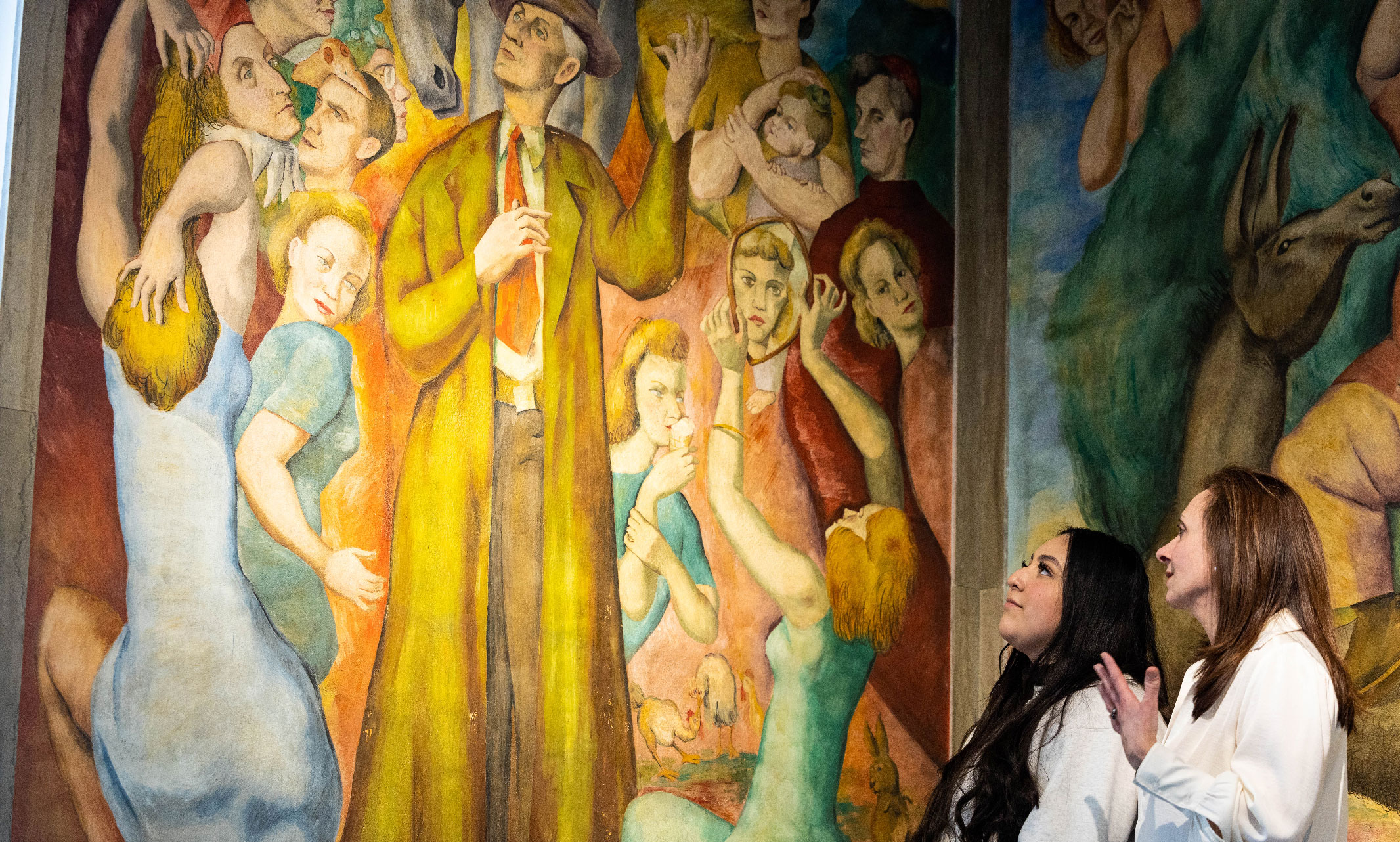The Mellon Foundation awarded the University of Missouri-Kansas City $4 million to create the Kansas City Monuments Coalition to help fund 16 preservation and commemorative organizations across Kansas City so visitors can enjoy historic sites for years to come.
Locations include UMKC, the city of Kansas City itself plus classic points-of-interest local residents will recognize from childhood field trips such as Fort Osage National Historic Site, Missouri Town and the Wornall-Majors House Museums. Others are relatively unknown exhibits that can host the field trips of tomorrow.
The grant was awarded as part of the Mellon Foundation’s Monuments Projects to the School of Humanities and Social Sciences, thanks to the work of Diane Mutti Burke, Ph.D., Sandra Enríquez, Ph.D. and David Trowbridge, Ph.D. from the history department, as well as Michael Sprague, coordinator for the Center for Digital and Public Humanities.
Mutti Burke explained the Mellon Foundation is expansive in how it defines monuments.
“It’s statues, of course, but also historic structures, interpretative signage, public exhibits, digital content and artistic and cultural programming,” she said.
The grant will support the historical and preservation projects of the 16 community organizations as well as public programming in partnership with the Kansas City Public Library. Examples include refreshing the Luis Quintanilla mural in Haag Hall on campus out to updates on exhibits at the Fort Osage National Historic Site. The UMKC team is excited about what support from Mellon will mean for local historical organizations.
“Our team has established relationships with our community partners and over the years we have talked about their needs and ideas,” Trowbridge said. “The most exciting part of the grant is getting them financial support and collaborating with them as they do this important work.”
The UMKC team founded the Kansas City Monuments Coalition to ensure the funding go as far as possible and to as many community organizations as possible.
“We felt if we could all work together and have ongoing conversations, we could learn from one another” Mutti Burke said. “By working together, we can be greater than the sum of our parts.”
“This transformative grant from the Mellon Foundation emphasizes the importance of inclusive storytelling and historical preservation” said Sumeet Dua, Ph.D., vice chancellor for research and economic development at UMKC. “The exceptional work of our UMKC faculty has been instrumental in securing this opportunity, showcasing their dedication to engaging with the community and reshaping how history is represented and understood.”
The work of the Kansas City Monuments Coalition will further advance the UMKC mission as a public urban research university by bridging the work of faculty, students and community partners. Enríquez explained community engagement has been a cornerstone of the history department and Center for Digital and Public Humanities and that support from the Mellon Foundation will bolster this commitment to collaborative historical interpretation.
“The work of the UMKC team and our community partners is a thrilling opportunity to leverage our strengths and collectively build a historical landscape that better reflects the experiences of everyone who calls Kansas City home,” Enríquez said.
Most of the $4 million will directly fund the historical efforts of partner organizations. The projects must be completed within the three years allotted by the Mellon Foundation. The UMKC team, including numerous additional faculty and staff, will also organize and deliver public programs as well as collaborate with the Kansas City Public Library’s Digital Branch on its next KC history website project. The grant includes funding for two full-time staff positions and graduate students who will aid this effort. Students who are part of the Mellon humanities internship program awarded to UMKC are also eligible to work on this project.
“The Monuments Project is an unprecedented multi-year commitment by the Mellon Foundation that is aimed at transforming the nation’s commemorative landscape to ensure our collective histories are more completely and accurately represented,” according to the foundation. “The Monuments Project supports efforts to express, elevate and preserve the stories of those who have often been denied historical recognition, and explores how we might foster a more complete telling of who we are as a nation.”

